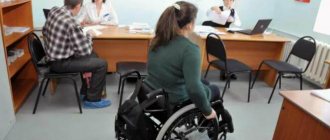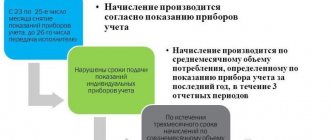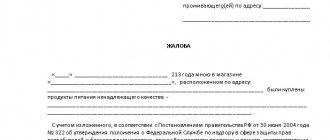New rules in 2021
Government Decree No. 92 of 02/01/2021 extended the temporary procedure for recognizing a person as disabled until the end of 2021.
At the same time, changes were made to the rules for conducting a medical and social examination (MSE) in absentia and the rules for recognizing a person as disabled in 2021 without being called to a commission. ConsultantPlus experts discussed how to apply for disability. Use these instructions for free.
to read.
Legislative basis for establishing a disability group
The disability group is assigned based on the results of the ITU assessment of the degree of limitations in life activities due to disorders of body functions. The procedure is regulated by law and regulations of the Ministry of Labor and the Ministry of Health.
The conditions under which a person is recognized as disabled are listed in the table.
| Index | Signs |
| Health condition is impaired | Persistent impairment of body functions due to illness, injury, or defects |
| Life activity is limited | Complete or partial loss of ability:
|
| Need for social support | The need for rehabilitation or habilitation measures |
The presence of one of the listed indicators is not a sufficient basis for assigning the status of “disabled person”.
The Ministry of Labor, in letter No. 13-4/10/B-4132 dated May 29, 2019, explains the rules by which a person is sent for and passes the ITU examination. In addition, obtaining disability under the new law in 2021 is regulated by a number of regulations, including:
- Federal Law No. 181-FZ of November 24, 1995;
- Government Decree No. 95 of February 20, 2006;
- Government Decree No. 607 of 05/16/2019;
- Government Decree No. 92 of 02/01/2021;
- Order of the Ministry of Labor No. 1024n dated December 17, 2015.
Benefits in terms of receiving a pension
The amount of the monthly disability allowance depends on the assigned group. The more severe the disabled person’s condition, the more restrictions, the larger the pension supplement he receives every month.
In addition to cash payments, there are many benefits that are also attractive to people who are willing to pay money (and a lot of it) for a “fictitious” disability.
This includes free assistance from social services, free medicines, state payment for sanatorium and resort treatment, preferential use of social taxis, and significant discounts on housing and communal services.
Conditions for assigning disability
Violations of body functions are expressed to varying degrees.
| Degree of expression | Scope of violation | Deviation range, % | Reason for violation |
| I | Minor | 10-30 | Diseases, injuries, defects |
| II | Moderate | 40-60 | |
| III | Expressed | 70-80 | |
| IV | Significant | 90-100 |
The necessary criterion for obtaining disability is a degree of severity of health impairment of 2 or higher in the range from 40 to 100%.
Depending on how severe the degree of deviation from normal functioning is, the following are provided:
- For adults - disability group (I, II, III).
- For persons under 18 years of age - the category “disabled child”.
Assignment to a specific group occurs after establishing the status according to certain criteria from Order No. 1024n. It contains a complete list of diseases for obtaining disability in 2021 for all groups.
| Disability group | Degree of expression | Deviation range, % | Reason for violation |
| I | IV | 90-100 | Diseases, injuries, defects |
| II | III | 70-80 | |
| III | II | 40-60 | |
| Disabled child | II, III, IV | 40-100 |
Why are prices for fictitious disability rising?
Recently, there have been more and more reports about uncovering criminal schemes and bringing the perpetrators to justice. All participants in the process understand perfectly well that they are committing a criminal offense. And because of small amounts, of course, no one will take such risks.
For example, for the second (fictitious) disability group you need to be prepared to pay from 100 to approximately 700 thousand rubles. Sometimes payment is even accepted in “kind” form – in the form of new cars.
The high price tag is explained by the fact that a large number of officials are involved in the scheme; each, of course, wants to receive payment for their part of the work.
Diseases for group II
For group II, the indicator is a deviation from the norm of 70-80%. A person is able to perform simple actions (including resorting to special means or the help of other persons). He works despite physical or mental disabilities, but under special conditions. Among the diseases:
- fecal fistula;
- chronic pulmonary insufficiency or absence of one lung;
- irreversible visual impairment;
- cirrhosis of the liver;
- mental illness;
- skull defects;
- leg paralysis
Diseases for group III
It can be difficult to distinguish healthy people from group III disabled people based on external signs. Citizens with this group have the right to work, since the rate of loss of function is 40-60%.
Diseases for assignment to disability group III include:
- incipient cancer;
- absence of one eye;
- ptosis of one eye (permanent, persisting after treatment);
- bilateral deafness;
- jaw defects in the absence of the ability to chew;
- facial defects that can only be corrected through surgery;
- defects of the skull bones;
- paralysis of the hand or one of the limbs, causing muscle wasting;
- the presence of a foreign object in the brain after injury;
- installation of a foreign body in the heart area (pacemaker, artificial valve);
- amputation of the hand, one or more fingers;
- one kidney or lung.
New procedure for passing the ITU
The current regulations reflect what new rules in 2021, when receiving a disability group, are followed by medical organizations, ITU and the Pension Fund. A medical organization, in a referral for medical examination issued to a citizen for the first time, indicates information about the results of medical examinations necessary to obtain clinical and functional data depending on the disease, reflecting:
- the citizen's health status;
- the degree of dysfunction of organs and systems of the body;
- state of the body's compensatory capabilities;
- carried out rehabilitation or habilitation measures.
In the initial referral to the ITU, they do not indicate the need for other medical examinations for citizens:
- having diseases, defects, irreversible changes or disorders included in the list approved by Government Decree No. 95 of February 20, 2006;
- sent to ITU for the purpose of developing an individual rehabilitation or habilitation program for a disabled person (disabled child) in the presence of previously conducted examinations within 12 months confirming diseases, defects, irreversible changes and the severity of dysfunction of organs and systems of the body.
The decision to establish disability (category “disabled child”) for the first time and to develop an individual rehabilitation or habilitation program is made by the ITU Bureau based on information about the citizen’s health status contained in the referral issued by the medical organization.
Judicial practice on the removal of disability
Where can I complain if my disability group has been removed? In this case, you can turn to judicial practice, which shows that if there are appropriate medical indications, the court most often makes a decision in favor of the plaintiff. In 2009, citizen Listkova N.A. was denied extension of group 3 disability. After that, she passed the ITU in the regional and then in the federal department, but was refused everywhere. Having several diagnoses (cephalalgia, dorsopathy, myelopathy, etc.), she needed benefits and payments. As a result, she filed a lawsuit. During the process, an independent forensic examination was appointed and a list of questions was drawn up for it, agreed with MSEC. Experts recognized the woman’s health problems, and the court declared the ITU’s decision illegal. Thus, the disability was restored.
What does disability give?
Disability is the status of an individual, which is acquired in connection with deviations in his state of health, accompanied by a persistent disorder of body functions due to illness or injury. The law established a list of diseases for which the status of a disabled person is granted, and the rules for obtaining it. The status of a disabled person makes it possible to receive support measures established by the state - cash payments, free medicines, tax, labor or other benefits.
| Support measure | Characteristics | Base |
| Pension provision | Insurance part of the pension (if you have even 1 day of service without reference to age) | Art. 9 Federal Law No. 400-FZ dated December 28, 2013 |
| Social pension (in the absence of grounds for assigning insurance) | Art. 11 Federal Law No. 166-FZ dated December 15, 2001 | |
| EDV | Indexed annually. Installed when refusing a set of social services. The payment amount is:
| Art. 28.1 Federal Law No. 181-FZ dated November 24, 1995 |
| Set of social services | Prescription medications, sanatorium-resort vouchers by referral, travel by suburban or intercity transport to the place of treatment and back | Art. 6.1 Federal Law No. 178-FZ dated 17.97.1999 |
| In the world of work | Shortened working week - 35 hours (for grades I and II) | Art. 92 Labor Code of the Russian Federation |
| Length of working day, shifts according to medical indications | Art. 94 Labor Code of the Russian Federation | |
| Admission to night and overtime work only with the consent of the disabled person | Art. 96, 99 Labor Code of the Russian Federation | |
| Work on weekends and holidays in the absence of medical prohibitions | Art. 113 Labor Code of the Russian Federation | |
| Vacation at your own expense up to 60 calendar days per year at a time convenient for the disabled person | Art. 128 Labor Code of the Russian Federation | |
| In the field of education | Admission to universities according to a quota (disabled people of grades I and II, from childhood, with war trauma) | Art. 71 Federal Law No. 273-FZ dated December 29, 2012 |
| In the field of employment | Employer quotas for jobs | Federal Law No. 181-FZ |
| Tax | Deduction in the amount of 500 rubles. for each month of the calendar year in terms of income that is subject to personal income tax | Art. 224 Tax Code of the Russian Federation |
| Reduction of the tax base for land tax by the cadastral value of 600 m² of land area owned by a disabled person since childhood | Art. 391 Tax Code of the Russian Federation | |
| Exemption of disabled people from childhood from property tax (in part 1 of each type of taxation object) | Art. 407 Tax Code of the Russian Federation |
Why are citizens increasingly interested in purchasing disability?
After the pension reform, when the Government of the Russian Federation decided to increase the size of pensions by increasing the retirement age, the demand for “fictitious” disability increased significantly. The disabled group gives the right not only to early “well-deserved” rest, but also to increased regular payments and a number of different benefits: travel, sanatorium treatment, housing and communal services, purchase of medications, etc.
Receiving all these bonuses is the main goal for which healthy people strive to obtain disability.
Instructions: how to apply for disability
New rules for obtaining disability have made the examination procedure simpler. Now the medical organization independently transmits the referral to the ITU electronically; citizen participation in the process is not necessary. The procedure became possible with the adoption of Government Resolution No. 607 of May 16, 2019. The Ministry of Labor of the Russian Federation, in letter No. 13-4/10/B-4132 dated May 29, 2019, explained the provisions of the new regulatory act.
Let's look at getting disability in 2021 step by step, taking into account the new rules.
Step 1. Receive a referral to ITU or a certificate of refusal to be sent to ITU.
A referral, subject to the consent of the person in writing, is issued:
- by a medical institution upon implementation of a set of measures, despite which persistent impairment of body functions persists;
- Pension Fund or social security - in the presence of documents that confirm deviations in functions due to illness, injuries, defects.
The referral to the ITU is transmitted to one of the specified organizations via electronic communication channels, or, if there are none, on paper.
Upon receipt of a refusal, a person is issued a certificate, in the presence of which he applies to the ITU independently.
Step 2. Prepare the required documents.
The following documents are required to complete the procedure:
- consent of the person in writing to conduct MSE;
- ID card or its certified copy;
- document proving the identity and authority of the representative (if the application is made through a representative);
- referral to ITU or certificate of refusal in such a referral;
- application for an ITU (when a citizen is issued a certificate of refusal to be referred to an ITU);
- medical documents that make it possible to establish the causes of disability;
- medical documents to determine the degree of loss of ability to work;
- conclusion of the medical commission of a medical organization confirming that for health reasons the citizen is not able to come to the MSA office, and therefore he requires MSA at home.
Step 3. Wait for the invitation to the ITU.
There is no longer any need to contact ITU. After receiving documents from the medical organization, the ITU sends an invitation to the patient, which indicates the date, time, and place of the examination.
Step 4. Go through the ITU and get a solution.
ITU pass:
- at the ITU bureau at the place of residence (place of stay), location of the pension case;
- at home if it is impossible to attend due to health;
- in a medical institution where the person is hospitalized;
- in the organization of inpatient social services;
- in a correctional facility;
- in absentia - by decision of the bureau.
Step 5. Obtain a certificate of disability and IPR.
A certificate confirming the established disability and IPR (rehabilitation program) is sent to:
- by registered mail;
- through the government services portal.
The nuances of obtaining a document for a disabled person
Registration of beneficiary status is permissible for all citizens with serious mental and physical problems. And to be successful in this matter, you need to know some of the features of the process. They are presented below.
Is it possible to undergo an examination at a location other than your place of registration?
If a disabled person does not live by registration, but in another region, a certificate can be issued to him at the place of residence when registering temporarily.
How to make a copy of the certificate correctly
It was previously mentioned that the beneficiary receives the document in two copies. If you need more certificates, you should contact a notary for copies - he will officially certify them.
Fact
! Holders of groups 2 and 1 receive notary services free of charge.
Passing the commission for bedridden or incapacitated citizens
When a patient is unable to undergo a medical examination on his own, a legal representative acts for him by proxy (for example, he collects documents). In this case, the ITU is carried out:
- at the subject’s home;
- in stationary conditions.
After reviewing the presented papers, the experts make a decision in absentia. The certificate is sent through social security.










